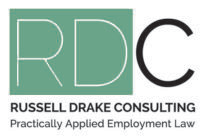Employers will, on occasion, seek to have an ‘off-the-record’ discussion with a staff member in order to try to address a concern in a less formal manner. However, extreme caution must be exercised at these times as it will often come back at the employer when a personal grievance is raised.
Seeking to circumvent due process (compliance with procedural fairness requirements) creates a high degree of potential risk and liability, and therefore any such discussions must be limited to specific situations only.
What is ‘without prejudice’?
‘Without prejudice’ is a legal term used to describe written or verbal communications aimed at settling disputes which cannot later be referred to in a legal environment, such as the Employment Relations Authority or Employment Court.
Most commonly within the employment context, a ‘without prejudice’ discussion might occur when the parties wish to be a little more ‘candid’ with each other – meaning the conversation may need to be more direct or blunt, and some would say more honest, than the style of communication that might typically exist within a formal discipline or performance management meeting. However, by far the most frequent situation where a without prejudice discussion might occur is in seeking to settle a dispute through some form of negotiation.
While the negotiation discussion may occur directly between the employer and the employee, it is more common that this takes place between representatives acting for the respective parties.
The advantage of such discussions, particularly in a dispute resolution environment, is that (if undertaken correctly) it provides complete protection that, should the negotiations be unsuccessful, either party may seek to raise the content of such discussions again in the future. This provides an “as if it never happened” situation.
With a few exceptions, a mediation meeting convened by MBIE is undertaken on a without prejudice basis with neither party being able to refer to the discussions outside of that environment.
We have been asked many times by employers/managers as to whether they can send an email to an employee to address an issue, and that if this is marked without prejudice, can this still be disclosed at a later date. The simple answer to that is yes it can, without prejudice cannot be used as a form of escape to cover communications that should rightly exist in an open environment.
A recent determination in the ERA (Stipetch v SGS New Zealand Limited [2022] ERA 387) reinforced the correct use of without prejudice discussions when they required Stipetch to resubmit her Statement of Problem with the removal of all references to the without prejudice discussions that had occurred between the parties regarding their settlement negotiation attempts. Within this determination the ERA confirmed that it had been agreed between the parties that their negotiation discussions would be undertaken on a private and confidential basis, with all email correspondence being marked ‘without prejudice’ and for that reason, the discussions were ‘privileged’ to those parties alone.
The reinforcing factor in this case was the mutual agreement of both parties to acknowledge the without prejudice intentions of their communications, highlighting that where only one-party claims this privilege, the protection does not exist. Such mutual consent must therefore be able to be demonstrated prior to the first ‘marked communication’ occurring.
Therefore while it may be possible for parties within the workplace to engage in a legitimate without prejudice discussion, a small flaw in that process may render the privilege null-in-void exposing the business to risk down the track. For this reason, the majority of without prejudice discussions occur where there is a third-party representative present, who will often act as the conduit for the discussions/negotiations in order to ensure that the risks of later exposure are eliminated.
If you find yourself in a place where a ‘without prejudice’ discussion with an employee may be necessary, please feel free to contact us to ensure that the approach you adopt to addressing this situation is without future risk and liability.
Russell Drake Consulting specialises in providing Employment Law advice to Employers, acknowledging the unique and isolated position that Employers often find themselves.

